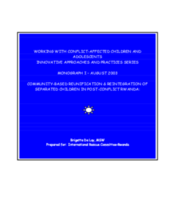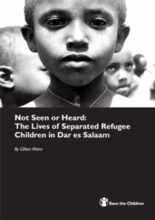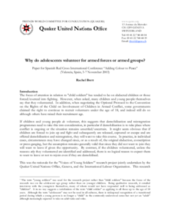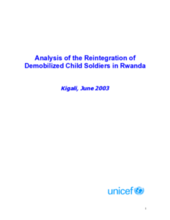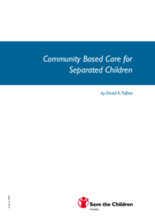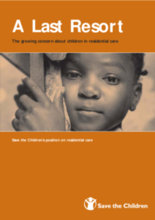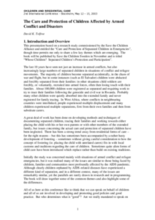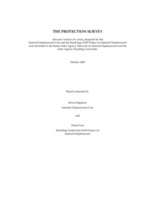Displaying 481 - 490 of 516
This paper hopes to contribute to a sorely under-documented field of how to reintegrate institutionalized children back into the community in a post-conflict environment. It provides a brief description of IRC Rwanda’s Reunification and Reintegration Program for Unaccompanied Children, emphasizing its innovative nature and promising field methodologies. It includes a review of core principles and a programmatic overview of center and community-based work, outlining key steps in the process. It also provides a brief review of good practices and offer some points of reflection for future work with children in post-conflict situations.
A study on the lives of separated refugee children in Dar es Salaam. The study highlights their experiences of abuse and discrimination, and their negative perception of refugee camps.
This short paper outlines the factors underlying children's voluntary decisions to join armed groups.
Follow-up analysis of reintegration for demobilized child soldiers in Rwanda. Concludes with lessons learned for successful reintegration.
A paper discussing the shortcomings of systems in which separated children are placed into residential/ institutional forms of care. It also considers community-based and some other forms of care as alternative approaches to preventing unnecessary separation of children from their families.
This paper outlines the International Save the Children Alliance’s position on residential care. It addresses the proliferation of residential care, its negative impact on children and the need for international attention. The paper presents the work of Save the Children and other agencies in order to highlight relevent issues and to provide a guide for those working with separated children.
A study on the lives of separated refugee children in Dar es Salaam. The study highlights their experiences of abuse and discrimination, and their negative perception of refugee camps.
Documents ways in which youth are mobilized to support political and military agendas, and how the construct of youth has been employed for political change.
Overview of a research study which provides guidelines for care of separated children in large-scale emergencies, focusing on the negative impact of residential care, extended family care, spontaneous and agency fostering, adoption, and alternative placements for adolescents.
Report of a field-based study of international protection for internally displaced persons. Presents conclusions and recommendations for policy.

